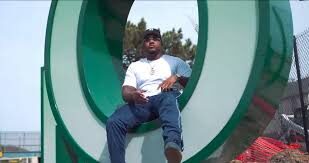film The Craft. The film, which has become a cult classic, explores themes of adolescence, power, friendship, and the consequences of unchecked ambition. Nancy stands out as a complex antagonist, embodying the darker side of teenage angst and the allure of witchcraft. This article delves into Nancy’s character, her motivations, and her impact on the film’s narrative, as well as the broader implications of her story in popular culture.
The Genesis of Nancy Downs
Nancy Downs is introduced as a troubled teenager in Los Angeles, grappling with a tumultuous home life and a desperate yearning for power and acceptance. Unlike her peers, Nancy is not just searching for friendship; she seeks an escape from her chaotic reality, marked by an abusive stepfather and an emotionally absent mother. Her backstory is crucial in understanding her motivations and the lengths to which she is willing to go to attain a sense of control over her life.
The film portrays Nancy as a product of her environment. Her childhood experiences shape her worldview, making her more susceptible to the allure of witchcraft as a means of empowerment. This nuanced portrayal is significant in an era when teen films often simplified characters into archetypes. Instead, Nancy’s complexity invites viewers to empathize with her struggles, even as she descends into moral ambiguity.
The Allure of Power
Nancy’s transformation begins when she meets Sarah Bailey (Robin Tunney), a newcomer at their high school who possesses innate magical abilities. Alongside fellow misfits Bonnie (Neve Campbell) and Rochelle (Rachel True), Nancy forms a coven that explores the dark arts. Initially, the group’s intentions seem innocent—experimenting with spells and discovering their powers. However, it quickly becomes apparent that Nancy’s thirst for power eclipses her friends’ more cautious approaches.
The film effectively illustrates Nancy’s escalating desire for dominance through her relationship with magic. As she becomes more adept at casting spells, her personality shifts dramatically. Nancy is drawn to the darker aspects of witchcraft, believing that power can be wielded to not only reshape her life but also exact revenge on those who have wronged her. This theme of power dynamics resonates deeply within the film and reflects broader societal issues regarding gender, adolescence, and self-identity.
The Dark Turn
As the coven’s magic intensifies, so does Nancy’s ambition. The once innocent exploration of their powers devolves into a toxic competition for dominance. The pivotal moment occurs when Nancy’s insecurities manifest into a dangerous obsession with power. Her desire to be the most powerful witch leads her to cast increasingly dangerous spells, which result in unforeseen consequences. This shift highlights the theme of moral corruption—how the pursuit of power can consume and destroy even those with the best intentions.
Nancy’s character arc serves as a cautionary tale about the dangers of ambition unchecked by morality. Her descent into madness is exemplified when she manipulates her friends for personal gain. The once tight-knit group begins to fracture under the weight of Nancy’s ambitions, illustrating how power can corrupt relationships and lead to betrayal.
The Symbolism of Nancy Downs
Throughout The Craft, Nancy serves as a symbol of both empowerment and destruction. Her character embodies the struggle many young women face in a society that often limits their agency. In seeking power through witchcraft, Nancy challenges traditional gender roles, pushing against the constraints imposed upon her by her upbringing and societal expectations.
However, the film does not portray Nancy’s journey as solely empowering. Her eventual downfall serves as a warning about the consequences of unrestrained ambition. The duality of her character—the blend of strength and vulnerability—makes her a compelling figure. She represents the struggle for identity and the lengths individuals will go to claim their place in the world, even when those actions lead to self-destruction.
The Relationship with Other Characters
Nancy’s relationships with her coven members—Sarah, Bonnie, and Rochelle—are pivotal to understanding her character. At first, she serves as a mentor to Sarah, encouraging her to embrace her powers. However, as Nancy’s ambition grows, she begins to view Sarah as a threat rather than an ally. This shift in perception culminates in a climactic confrontation between the two characters.
The dynamic between Nancy and Sarah illustrates the complexities of female friendships, particularly during adolescence. While initially united by their shared experiences as outsiders, the girls’ bond deteriorates under the weight of jealousy and ambition. Nancy’s willingness to manipulate and harm those she once considered friends underscores her transformation from a sympathetic character to a formidable antagonist.
Bonnie and Rochelle also feel the repercussions of Nancy’s transformation. As she becomes increasingly unstable, they find themselves grappling with the ethical implications of their powers. Their reactions to Nancy’s growing darkness serve as a contrast to her character, highlighting the different ways individuals cope with the allure of power.
Nancy as a Reflection of Society
Nancy Downs can also be viewed as a reflection of societal fears surrounding female empowerment and the consequences of deviating from traditional gender norms. In the 1990s, the cultural landscape was marked by a resurgence of interest in witchcraft, feminism, and the exploration of identity. Nancy embodies the complexities of this movement, serving as both a figure of empowerment and a cautionary tale about the potential dangers of unchecked ambition.
The film’s portrayal of Nancy resonates with contemporary discussions about mental health, trauma, and the impact of one’s environment on behavior. Her struggles serve as a reminder of the importance of addressing issues such as abuse, neglect, and the search for identity in a society that often marginalizes individuals, particularly women.
The Legacy of Nancy Downs
Since its release, The Craft has left an indelible mark on popular culture, and Nancy Downs remains one of its most memorable characters. Fairuza Balk’s portrayal of Nancy has garnered critical acclaim and has solidified her status as a cult icon. The film’s exploration of witchcraft and female empowerment has inspired numerous discussions, fan theories, and even academic analyses.
In recent years, the resurgence of interest in witchcraft and the reclamation of the term “witch” as a symbol of female empowerment has brought Nancy’s character back into the spotlight. She is often cited in discussions about strong female characters in horror and fantasy, particularly as a representation of the struggles faced by women in their pursuit of power and agency.
Moreover, Nancy has become a symbol for those who feel marginalized or misunderstood. Her character resonates with individuals who have experienced trauma and seek empowerment through unconventional means. In this sense, Nancy’s story transcends the confines of the film, serving as a beacon for those navigating their own paths of self-discovery.
Conclusion
Nancy Downs is a multifaceted character whose journey in The Craft reflects the complexities of adolescence, power, and the consequences of ambition. Her transformation from a troubled girl seeking acceptance to a formidable antagonist serves as a cautionary tale about the allure of power and the potential for self-destruction. Through her relationships with her coven members, Nancy embodies the struggles of female friendship and the challenges of navigating identity in a society that often imposes limitations.





